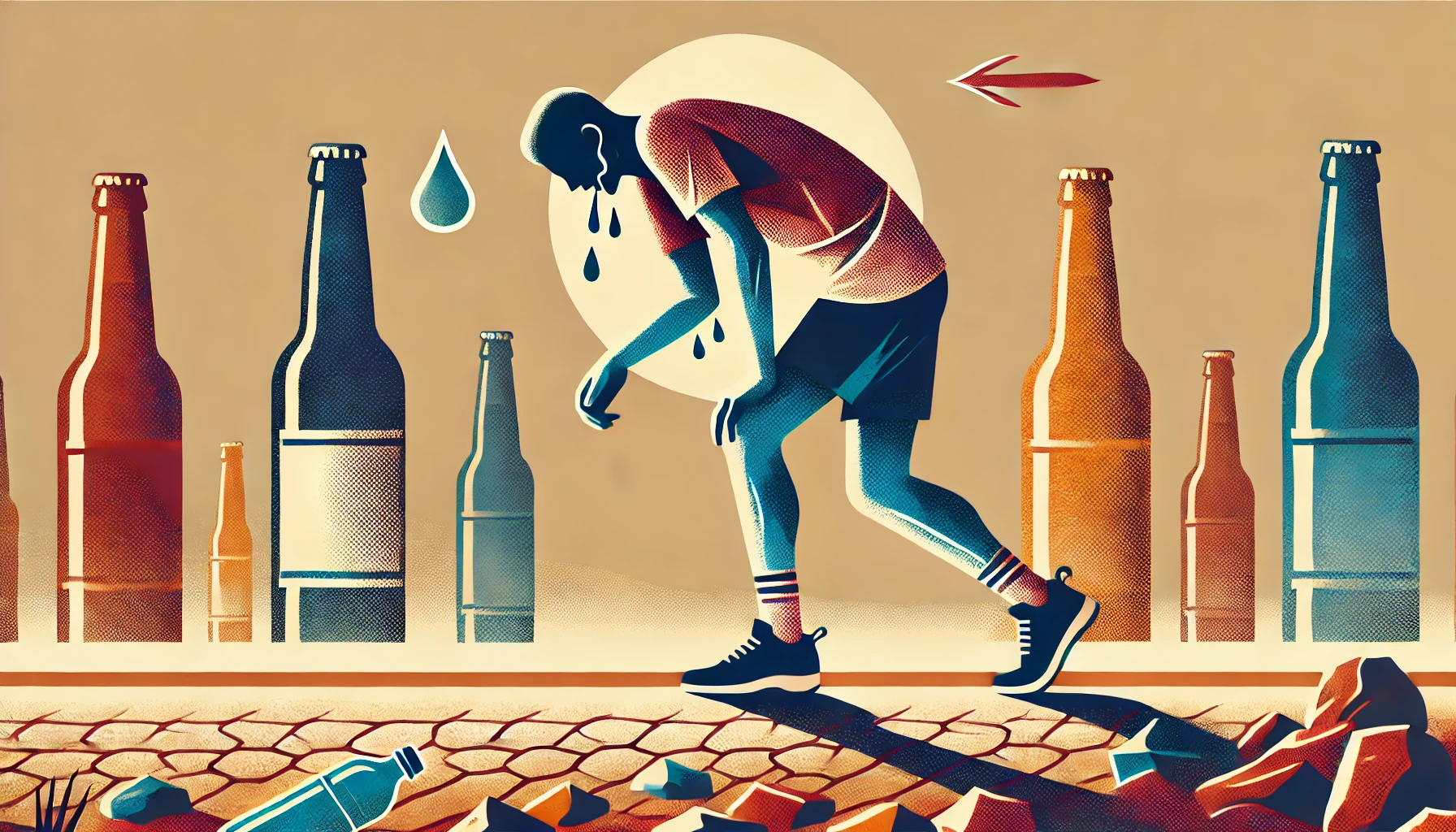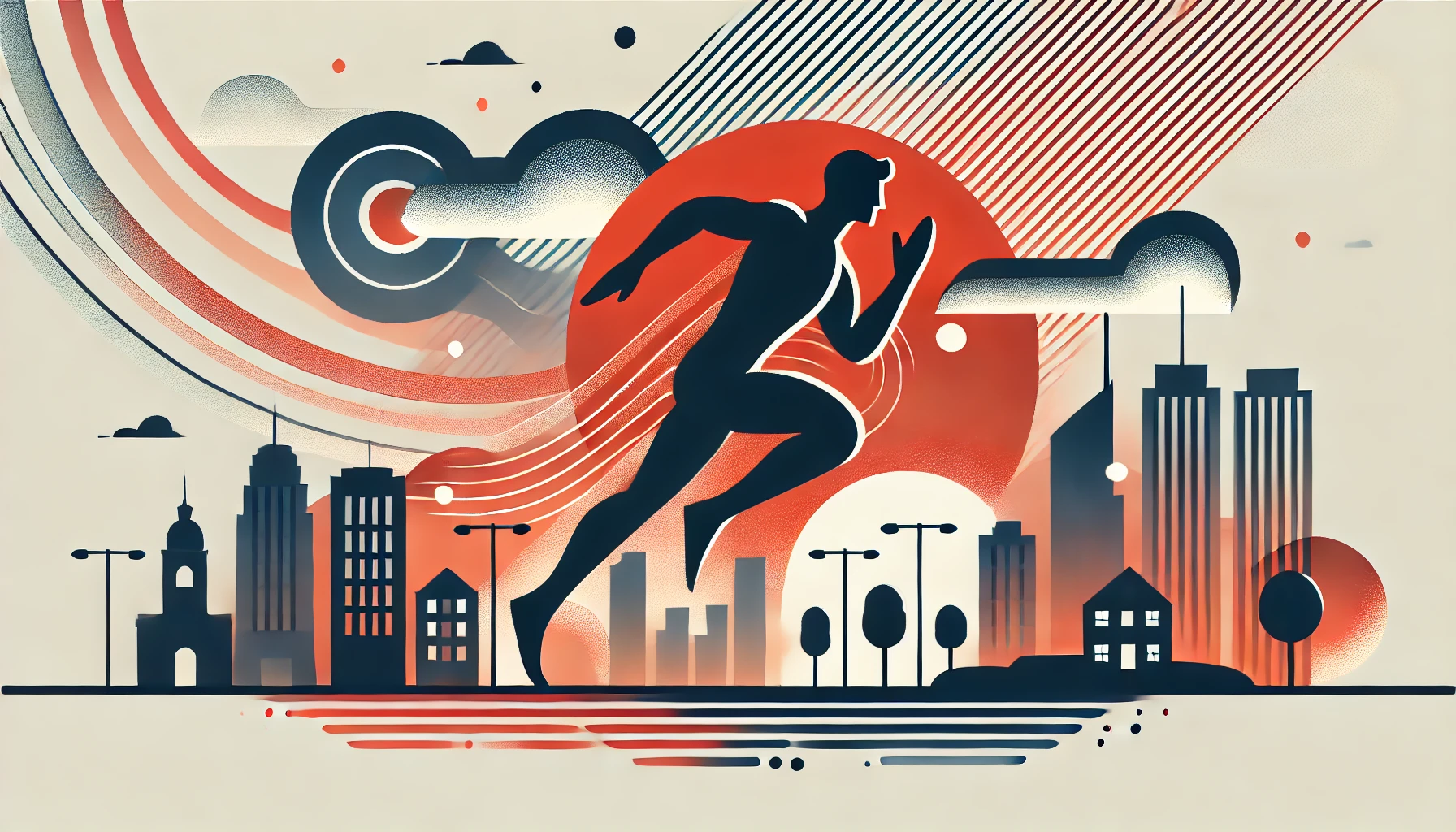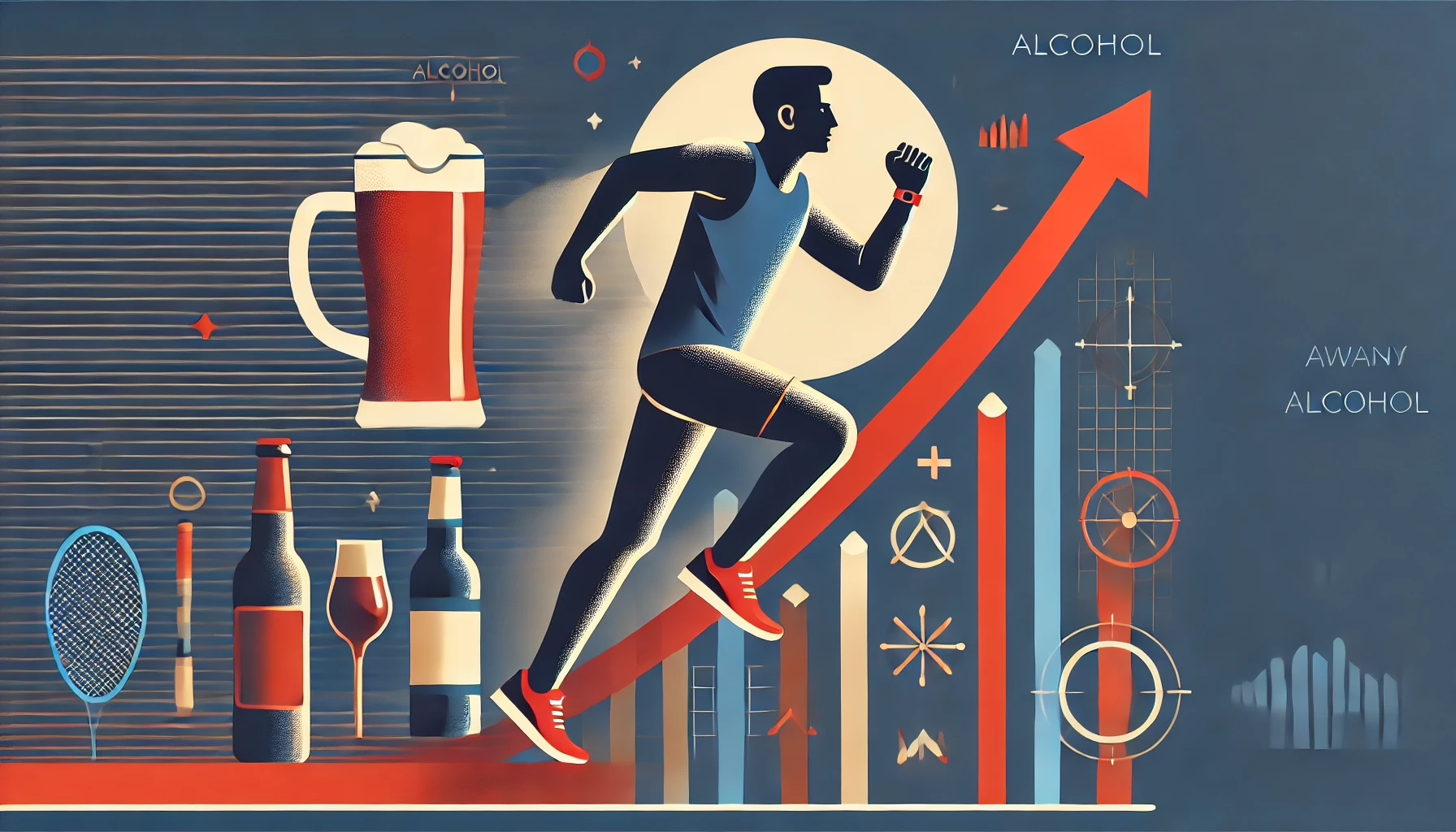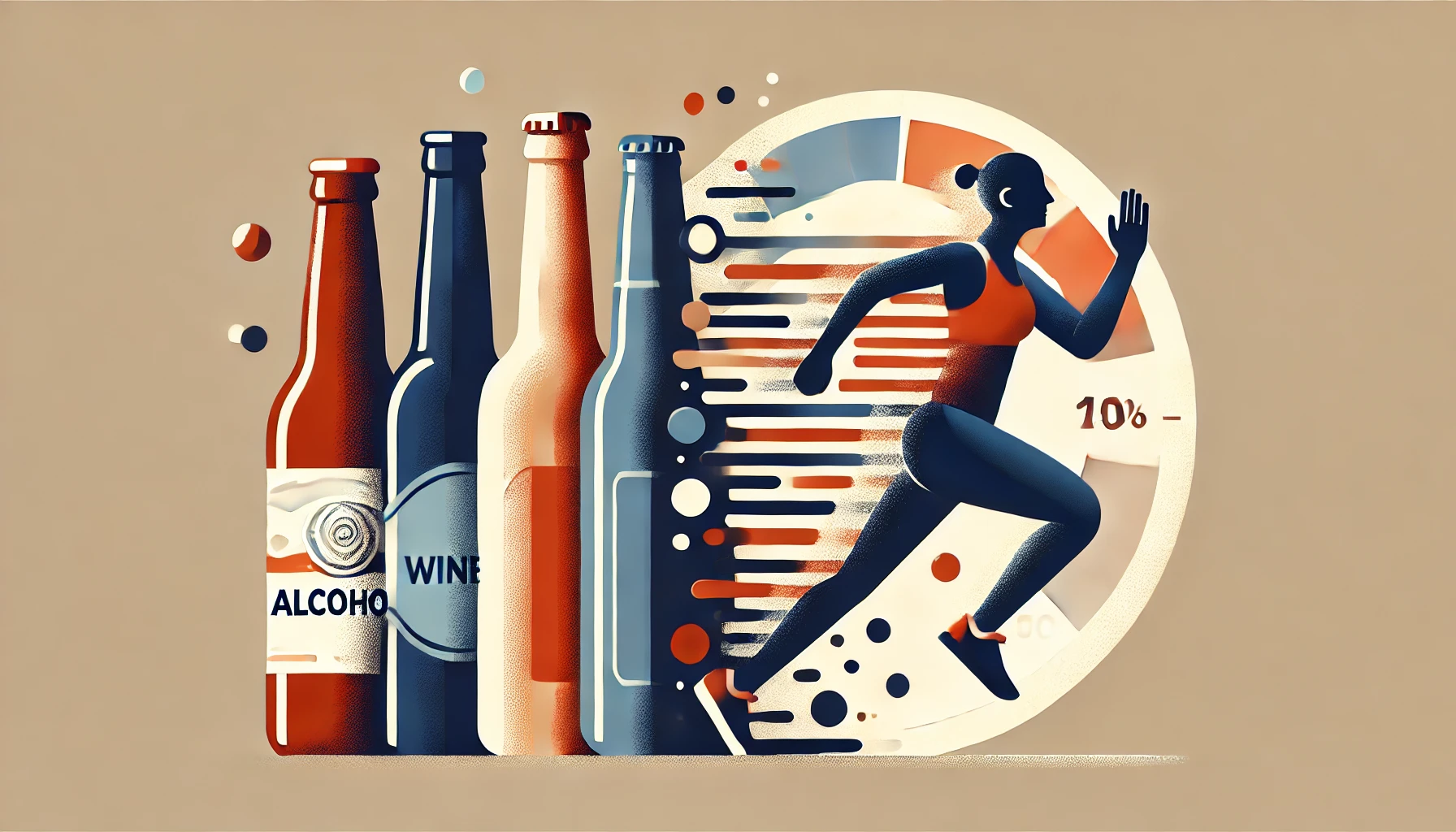Are you an avid runner who likes to enjoy a drink every now and then, but isn’t quite sure how alcohol and running mix?
Is it better to drink after my run? How many drinks are too many the night before a run? Is running good for a hangover? Why am I not losing weight despite all my running?
These are questions I’ve asked myself during my training for a half marathon.
For me, running is incredibly rewarding—you are pushing your body to new fitness levels and sometimes, a drink feels like a well-earned treat. But I started wondering: How much is alcohol affecting my body and holding me back from reaching my running goals?
After doing thorough research, I want to share what I’ve learned so we can better prepare for our next race—without letting alcohol derail our progress.
How Alcohol Can Affect Your Body and Training

Dehydration
Why is urinating so common when drinking alcohol?
That is because alcohol acts as a diuretic, meaning it increases urine production.
It does this by inhibiting antidiuretic hormone (ADH), which normally helps your kidneys retain water. Without enough ADH, your body will lose more fluid through urination than it’s accustomed to.
Without replenishing the lost fluids, and then add sweating from running, you create the perfect recipe for dehydration.
Dehydration reduces blood volume, making it harder for your body to deliver oxygen to your muscles—fatigue starts kicking in and your heart works harder. What might normally feel like an easy run can suddenly feel much more challenging.
Muscle Recovery and Growth
Most runners know that post-run soreness is caused by tiny tears in muscle fibers. With proper recovery, these fibers repair, adapt, and grow stronger.
However, drinking alcohol after a run or workout could interfere with the healing process, potentially prolonging soreness. This isn’t ideal—especially if you have a full week of training ahead.
At the same time, a study has shown that drinking after an intense workout decreases protein synthesis (muscle building and recovery) by 37 percent.
Sleep Disruption
An important component to muscle recovery is sleep. Quality rest helps your body heal, especially during periods of high training volume or injury recovery.
While a glass of wine or a couple of beers before bed might seem harmless, alcohol can actually disrupt your sleep.
Too much alcohol before bedtime can reduce the amount of deep and REM sleep you get—both of which are essential for proper recovery.
Weight Gain & Metabolism
From beers to cocktails, alcohol can contribute to weight gain if it leads to a calorie surplus.
You may think that doing some light exercise or running will fully offset the extra calories from drinking, but alcohol affects how your body processes energy
We often consider carbohydrates, fat, and protein as our main energy sources, but ethanol—found in alcohol—also provides energy. When alcohol enters the body, the liver prioritizes breaking it down first because it treats it as a toxin.
While this process helps the body eliminate alcohol, it temporarily slows down the metabolism of other energy sources, particularly fat. This means that while alcohol is being processed, fat burning is reduced, which can make weight management more challenging if alcohol is consumed frequently or in excess.
Although light exercise still burns calories and benefits overall health, drinking alcohol regularly could make fat loss more difficult if it contributes to excess calorie intake.
Can You Drink and Stay Fit?

Moderation is Key
Alcohol and running don’t exactly go hand in hand—especially if you’re aiming for peak performance.
But let’s be honest, most runners aren’t elite athletes and enjoying a drink or two won’t derail your training for that upcoming 5K.
The key is moderation. Studies suggest that consuming 1 to 2 units of alcohol has little to no impact on performance the next day.
To put that into perspective:
1 unit = 10 ml (or 8g) of pure alcohol
1-2 units is roughly:
- 🍺 1 can of beer (5.5%)
- 🍷 1 glass of wine (12%)
- 🥃 1–2 ounces of spirits (40%)
Once you go beyond moderate consumption, though, the effects of alcohol—dehydration, poor sleep, and slower recovery—can start to take a toll on your running performance.
Best and Worst Alcohol Choices for Runners
Best options:
- Dry wines
- Light beers
- Low-sugar cocktails
Worst options:
- Sugary cocktails
- High calorie beers
- Pre-made mixes
Tips for Minimizing Alcohol’s Impact on Fitness Goals

Here are 5 tips:
- Avoid excessive drinking before race day – This is especially important in hot weather, where dehydration can hit harder.
- If you drink the day before a run, hydrate and fuel properly – Pair alcohol with a nutritious meal and drink extra water to minimize its effects.
- Rehydrate before drinking post-workout – Alcohol can dehydrate you further, so replenish fluids first.
- Skip alcohol before bed for better sleep – Even small amounts can disrupt sleep quality and recovery.
- Try an alcohol-free challenge – You might be surprised at how much better you feel without it.
Conclusion
At the end of the day, running and alcohol don’t have to be mutually exclusive—it all comes down to balance.
If you’re training for a big race or trying to hit a new personal best, cutting back on alcohol might give you the edge you are looking for.
But if you enjoy a drink here and there, being mindful of when and how much you drink can help minimize any negative effects. Stay hydrated, recover well, and listen to your body—because nothing beats the feeling of a strong run. Cheers (responsibly) to that!
If you have tips or experiences on balancing running goals with the occasional social drink, share them in the comments! We’d love to hear your thoughts.


[…] you are interested in knowing how alcohol effects your running, you can read my post on this subject. It was a topic I was very interested in before starting this […]